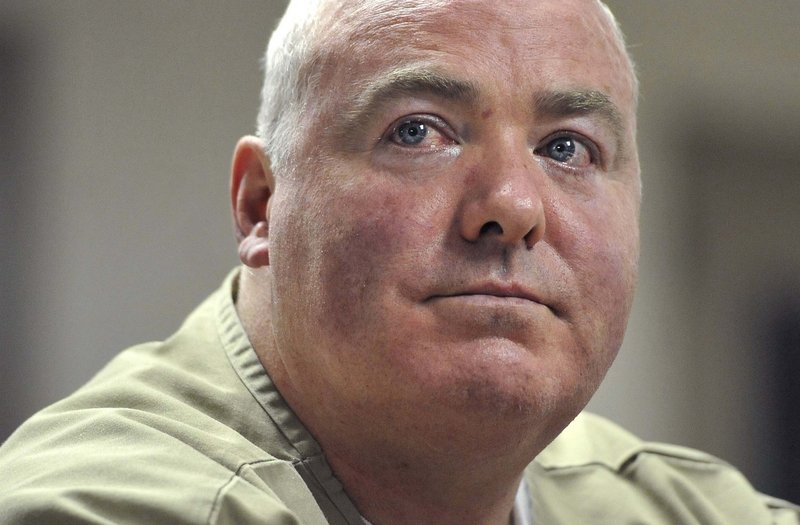VERNON, Conn. — The trial attorney for Kennedy cousin Michael Skakel said Tuesday he was reluctant to call experts at times during his murder trial because he worried about a “rich man’s justice perception and we could just buy experts.”
Skakel’s latest appeal trial began Tuesday with his former lawyer defending an accusation that he failed to competently defend Skakel when he was convicted of murder in 2002.
Skakel, the 52-year-old nephew of Robert F. Kennedy’s widow, Ethel, is serving 20 years to life in prison for the 1975 golf club bludgeoning of Greenwich neighbor Martha Moxley when both of them were 15.
Skakel argues that during the 2002 trial, attorney Michael Sherman failed to challenge the state’s star witness and obtain evidence pointing to other suspects, did a poor job with jury selection and closing arguments and didn’t hire enough investigators and expert consultants.
Sherman, the first witness to take the stand in Rockville Superior Court in the appeal trial, said he had been confident before the 2002 trial that he would win. Sherman previously has said he did all he could to prevent Skakel’s conviction.
Attorneys for Skakel argue that Sherman failed to challenge the state’s star witness, Gregory Coleman, by finding witnesses who later rejected his claim that Skakel confessed to the crime. Coleman testified that Skakel confessed when they attended Elan, a reform school in Maine in the late 1970s, and said one of a few classmates he named may have heard it.
Sherman said Monday Coleman was “patently unbelievable so I never felt I needed a smoking gun to shoot down Mr. Coleman’s testimony.”
Sherman was also pressed by Skakel’s current attorney, Hubert Santos, on whether he sought an expert to testify about Elan and whether he tried to get block Skakel’s alleged confessions on the grounds that they were coerced. Sherman said he reached out to several people, including an expert on false confessions, but felt the expert wasn’t needed because the defense contended Skakel never confessed.
“I didn’t want to turn it into a rich man’s justice perception and we could just buy experts,” Sherman said.
Sherman also was pressed on why he didn’t obtain a police sketch of a man seen walking near the Moxley property the night of the murder that Skakel’s defense contends resembled an early suspect. Prosecutors say police concluded the sketch was of a neighbor.
Sherman said he did file motions seeking any sketches but didn’t get them before trial. As Skakel’s attorney put up the sketch next to a photo of the earlier suspect, Sherman acknowledged having the sketch would have been helpful.
Sherman also said he tried unsuccessfully to get a profile report on the suspect prepared by investigators, saying that also would have been helpful because investigators at the time backed up Skakel’s alibi. Prosecutors say the report was hearsay and not admissible.
Santos questioned Sherman on why he didn’t call witnesses to establish that the lead investigator planned to write a book on the case, saying that could have opened a broad new line of defense. Sherman said he tried unsuccessfully to find out about the book and acknowledged it could have been used in his defense.
Prosecutors say many of the issues were rejected in earlier appeals, including the book deal and issues related to the star witness.
Skakel, who lost a bid for parole last year, is hoping to get out of prison through a writ of habeas corpus arguing he was deprived of his constitutional right to effective legal representation when Sherman was his attorney.
Santos, Skakel’s current attorney, argues his client’s conviction is based on two witnesses of dubious credibility who claimed Skakel confessed to the crime. He contends the verdict likely would have been different if Sherman had conducted an appropriate investigation, obtained evidence and challenged inappropriate state evidence.
Prosecutor Susann Gill counters that Skakel’s conviction came after more than a dozen witnesses testified that he made incriminating statements, including three direct confessions.
Skakel has lost two appeals before the Connecticut Supreme Court.
Send questions/comments to the editors.



Success. Please wait for the page to reload. If the page does not reload within 5 seconds, please refresh the page.
Enter your email and password to access comments.
Hi, to comment on stories you must . This profile is in addition to your subscription and website login.
Already have a commenting profile? .
Invalid username/password.
Please check your email to confirm and complete your registration.
Only subscribers are eligible to post comments. Please subscribe or login first for digital access. Here’s why.
Use the form below to reset your password. When you've submitted your account email, we will send an email with a reset code.